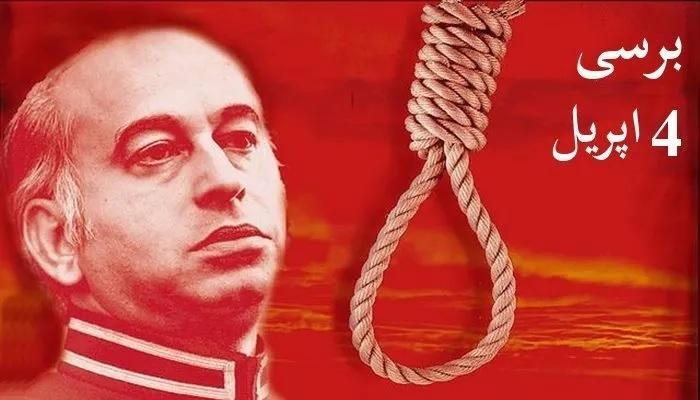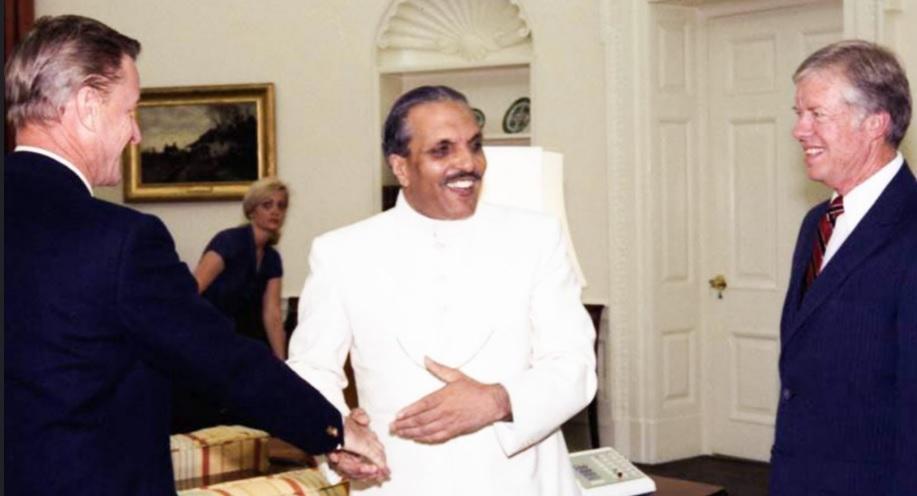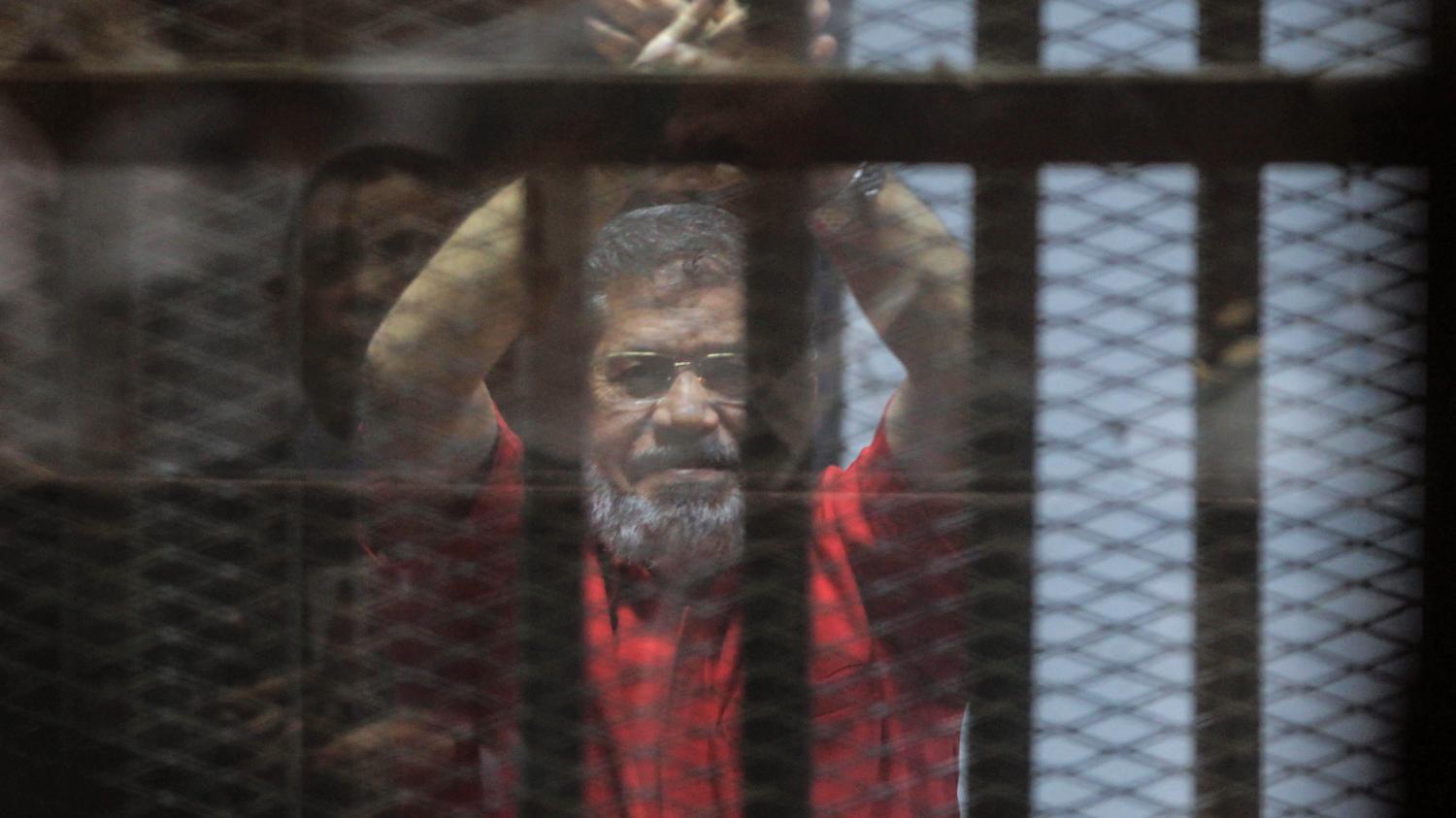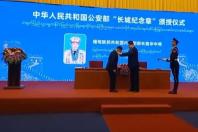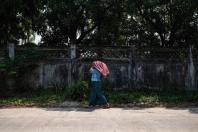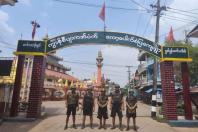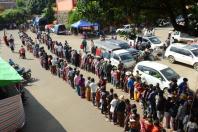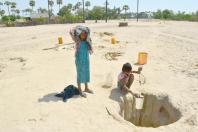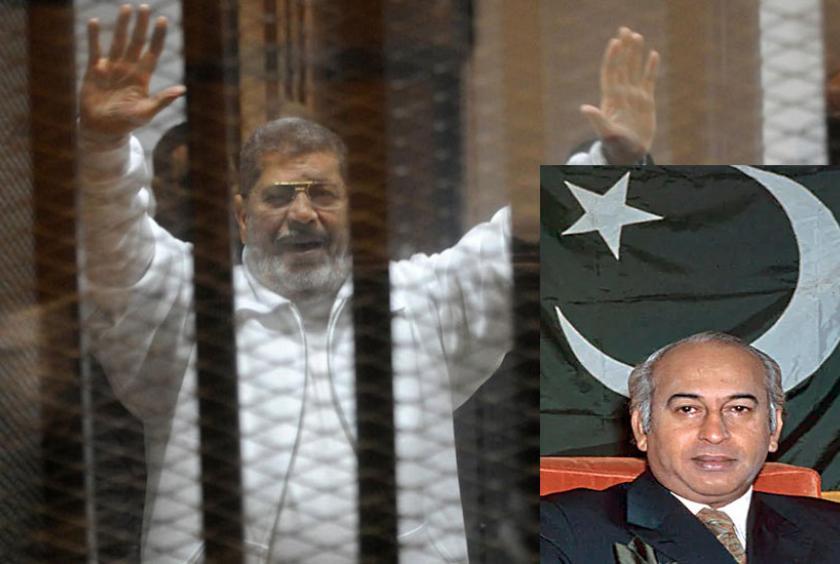
■ Pakistan
The United States’ involvement in Pakistan, a neighbouring country of China, has greatly influenced the rise and fall of the latter’s political, military and diplomatic affairs. Most noteworthy is the U.S. interference with the several of coups in Pakistan. Most of the coups in the world are often staged only when superpowers give the green light. For example, Soviet /Russia and China used to get involved. However, in doing so, Russia and China clung to their policy and always supported the same side. The U.S. always acted with double standard in the pursuit of its own interests. The coups it supported were encouraged or ignored, whereas the ones it did not support faced strong opposition. Consequently, the instability resulted in civil wars in those countries.
The U.S. who repeatedly claims to support democracy have not always oppose every coup. Examples of this can be found in the coups in Thailand and Egypt. On 22 May 2014, the Royal Thai Armed Forces, led by General Prayut Chan-o-cha launched a coup d'état against the democratically elected government. U.S. State Secretary John Kerry initially denounced the military coup, but Americans continued their Cobra Gold joint military exercise. There was no severe action against the military government and the relations with the Prayut military government eventually improved.
The U.S. stance was even worse in the 2013 Egyptian military coup. Egyptian army chief General Abdel Fattah al-Sisi led a coalition to remove the democratically elected President of Egypt, Mohamed Morsi, from power on July 3, 2013 and suspended the Egyptian constitution of 2012. The military arrested Morsi and Muslim Brotherhood leaders. John Kerry shamelessly announced that the Egyptian army had restored democracy by removing Morsi from power.
In both military coups, the democratically elected governments were overthrown. The Pheu Thai Party led by Yingluck Shinawatra defeated Abhisit-led Democrat Party in the Thai general election in 2011 securing 159 of 265 parliamentary seats. There were no cases of vote rigging. Likewise, Mohamed Morsi from Muslim Brotherhood won the 2012 election with 13.2 million votes (51%). These two coups were staged when U.S President Barrack Obama and Vice President (now President) Joe Biden from the Democratic Party were in office. At that time, the Democrats not only stayed silent but also encouraged the coup governments.
Egyptian President Morsi was even sentenced to death. Yet, the U.S. did not push for their release or the easing of their sentences. (Pakistani Prime Minister Ali Bhutto’s death sentence was carried out while Morsi’s death penalty was cancelled but Morsi died during a retrial. He reportedly died after facing severe living conditions and medical treatment denials in prison.)
Pakistan Prime Minister Ali Bhutto, who was prosecuted and sentenced to death after the coup (Photo – Soapboxie)
■ Democracy means …
(1) Suppose we accept the fact that the government coming to power through elections is welcomed and applauded or a long-term dictatorial rule is opposed.
(2) Suppose there is no reason to oppose any management for building national defence power and infrastructure for a sovereign nation.
(3) Suppose we believe the United States leading the effort to promote democracy is constantly doing such acts.
History has shown that it is the United States that has reversed all these assumptions, opinions and beliefs when it started communicating with Pakistan. Since the early Cold War, the U.S. has been supporting the Pakistani army that split from India by importing an American style and encouraging the lasting power of its descendants. It is the U.S. that did not engage in stable relations with the Pakistani civilian governments that won elections in the interests of their country and people.
Military coups or martial laws in Pakistan began in 1958. There have been numerous successful attempts since 1951. Since its creation in 1947, Pakistan has spent several decades under military rule (1958 – 1971 after a coup by army commander-in-chief Gen. Ayub Khan, 1977 – 1988 after a coup by Chief of Army Staff General Zia-ul-Haq, and 1999 – 2008 after a coup by army chief Gen. Pervez Musharraf). The United State did not oppose those military coups at all. What’s more, the U.S. relations with Pakistan improved during the long reigns of those generals. Former Pakistani Prime Minister Benazir Bhutto, daughter of former Prime Minister Zulfiqar Ali Bhutto, said: “After a nuclear test in 1988, my father was hanged as he failed to follow the urging of a superpower to stop seeking nuclear power.” But she didn’t mention what country was the superpower.
Studying the soft power and hard power the U.S. applied in Pakistan, it is crystal clear that the U.S. democracy is just a double standard.
■ Geography and history
Pakistan has an area of 881,913 square kilometers (340,509 square miles). It has a 1,046-kilometre (650-mile) coastline along the Arabian Sea and Gulf of Oman in the south, and is bordered by India to the east (2,912 km), Afghanistan to the west, Iran to the southwest (909 km), and China to the northeast (523 km). It is separated narrowly from Tajikistan by Afghanistan's Wakhan Corridor in the north (2,430 km), and also shares a maritime border with Oman. When the British granted India Empire independence in 1947, it decided to divided it into two dominions—India and Pakistan. The Muslim Federation demanded a separate country. The Indian Congress granted an independent country but was willing to make the area of Pakistan as small as possible. Mountbatten, who oversaw the partition of India, was to divide India under his formula and, at the same time, retain maximum possible unity. Asked a question about concern over the likelihood of violent riots, Mountbatten replied: “At least on this question I shall give you complete assurance. I shall see to it that there is no bloodshed and riot. I am a soldier and not a civilian. Once the partition is accepted in principle, I shall issue orders to see that there are no communal disturbances anywhere in the country. If there should be the slightest agitation, I shall adopt the sternest measures to nip the trouble in the bud.” What he had expected did not come and bloodsheds occurred. Riots and killings among Muslims, Hindus and Sikhs led to 200,000 to 20,000,000 deaths in Punjab alone. And 50,000 female Muslims and 33,000 female Sikhs were raped. Total migration across Punjab during the partition is estimated at 12 million people; around 6.5 million Muslims moved into West Punjab, and 4.7 million Hindus and Sikhs moved into East Punjab. It was the largest migration in world history.
Pakistan became a dominion of the British Common Wealth, and was declared as the Islamic Republic of Pakistan in 1956 based on its constitution. In 1971 after nine months of war, East Pakistan split away as Bangladesh. Over the past four decades, Pakistan has gone through political scandals with civilian and military governments and the rise and fall of democracy, dictatorship, secularism and Islamism.
■ 70 years of U.S.-Pakistan relations
Some political analysts have dubbed the rise and fall of their bilateral relations as roller-coaster relations.
The U.S. provided US$30 billion in aid to Pakistan from 1948 to 2013, half of which was military purposes. When Soviet-Afghanistan war happened from 1979 to 1989, U.S. and Pakistan supported the Afghan Mujahedeen. When Americans waged war against Afghanistan in 2001, Pakistan became a most strategic geopolitics and military supply route. Pakistan was recognized an ally of NATO. Pakistan participated in the Afghan peace process. When the Taliban returned to power in 2021, U.S. policy experts reviewed the U.S. - Pakistan relations.
■ Military ties (1947–1958)
In the early Cold War period, Prime Minister Liaquat Ali Khan maintained friendly relations with both the Soviet Union and the United States in hopes that Pakistan could benefit from an alliance with both superpowers. Pakistan did not want its rival India to have friendship relations with Soviet. In 1950, the United States extended an overture to Pakistan by inviting Prime Minister Khan for a 23-day official state visit. U.S. President Truman requested Pakistan's premier to let the CIA formulate a base in Pakistan. Throughout the period between 1950 and 1953, several major Pakistan political and military figures paid visits to the United States. During this time, Army commander Ayub Khan paid visits to the United States – a figure who would later institute a strongly pro-American military dictatorship. Defense ties between the two countries strengthened almost immediately following Khan's visit to the United States. Close ties between the countries were further consolidated by a mutual defense treaty signed in May 1954, after which hundreds of Pakistani military officers began to regularly train in the United States. A U.S. Military Assistance Advisory Group (MAAG) was also established in Rawalpindi, then capital of Pakistan. Pakistani officers were not only trained in military tactics, but also taught leadership, management, and economic theory.
In 1956, President Dwight Eisenhower requested permission from Pakistan's new Prime Minister Huseyn Suhravardie to lease the Peshawar Air Station (PAS), which was to be used in intelligence gathering of Soviet intercontinental ballistic missiles.
After a military coup d'état in 1958, Ayub Khan argued that left wing activists could seize power in Pakistan, thereby jeopardizing American interests in the region. He successfully convinced American officials that the Pakistani military was the strongest and most capable institution to govern the country.
■ Military ties (1958–1971)
In 1961, Khan paid his first visit to the United States as head of state. American goodwill towards Khan was evident by an elaborate state dinner held at Mount Vernon, and a ticker tape parade for Khan in New York City.
President Richard Nixon and Foreign Secretary Henry Kissinger took advantage of Pakistan's close relationship with the People's Republic of China to initiate secret contacts that resulted in Henry Kissinger's secret visit to China in July 1971 after visiting Pakistan. The contacts resulted in the 1972 Nixon visit to China. In December 1971, war broke out between India and Pakistan for two weeks. President Nixon urged Yahya Khan to restrain Pakistani forces in order to prevent escalation of the war, and to safeguard Pakistan's interests. Nixon feared that an Indian invasion of West Pakistan would lead to socialist India's domination of the subcontinent, thereby strengthening the position of the Soviet Union. Yahya Khan feared that an independent Bangladesh would lead to the disintegration of West Pakistan.
The United States secretly encouraged the shipment of military equipment from the Shah's Iran, Turkey, and Jordan to Pakistan, and reimbursed those countries for their shipments, despite Congressional objections. Near the end of the war, the Nixon Administration recognized Pakistan's imminent defeat, but sent the USS Enterprise and the Task Force-74 of the United States Seventh Fleet into the Indian Ocean.
■ Military ties (1971–1977)
As a result of the 1970s election, Zulfikar Ali Bhutto, a charismatic democratic socialist, became President (1971–1974) and later Prime Minister in 1974. His socialist ideas favored the communist ideas but never actually allied with communism. Bhutto opposed the ultra-leftism concepts but was a strong proponent of left-wing politics, which the U.S. had opposed in Pakistan from the very start.
Under his presidency, Jimmy Carter, an anti-socialist, tightened the embargo placed on Pakistan and put pressure on the government through the United States Ambassador to Pakistan. Meanwhile, Bhutto's hard-line stance was on possessing nuclear power. In his inaugural speech, President Carter announced his determination to seek the ban of nuclear weapons across the world. Then, the situation reached an advanced stage.
In 1974, India carried out the test of nuclear weapons near the Pakistan's eastern border, so Bhutto sought the United States to impose economic sanctions in India. In 1976, Bhutto and Kissinger go into a heated argument over the nuclear weapon issue. Bhutto replied: "For my country's sake, for the sake of people of Pakistan, I did not succumb to that black-mailing and threats". The atomic bomb project became fully mature in 1978, and a first cold test was conducted in 1983.
President Jimmy Carter smiles as Pakistani coup leader Zia-ul-Haq shakes hands with US National Security Adviser Brzezinski in 1980. (Photo – Flickr)
■ Military ties (1977–1988)
After the removal and death of Bhutto, Pakistan's ties with the United States were better and improved. On December 24, 1979, the Soviet 40th Army crossed borders, rolling into Afghanistan, so the United States needed Pakistan urgently to ensure a balanced control in the region. Following the Soviet invasion of Afghanistan, ISI and CIA ran multibillion-dollar worth Operation Cyclone to thwart the communist regime as well as defeating Soviets in Afghanistan. Throughout the military regime of General Zia-ul-Haq, the ties and relations were promoted at its maximum point. Initially, Carter offered Pakistan $325 million in aid over three years; Zia rejected this. When Ronald Reagan came to office in 1981, the United States agreed on a $3.2 billion military and economic assistance program. Reagan sold Pakistan attack helicopters, self-propelled howitzers, armoured personnel carriers, F-16 Fighting Falcon warplanes, nuclear technology, naval warships, and intelligence equipment and training.
■ Military ties (1988 - 1998)
US-Pakistani relations deteriorated under Benazir Bhutto and Nawaz Sharif, who became prime ministers after the mysterious deaths of Zia-ul-Haq and the U.S. ambassador in a plane crash.
In 1992, U.S. Ambassador Nicholas Platt told Pakistani leaders that if Pakistan continued to support terrorists in India or areas of Indian influence, "The Secretary of State himself would have to list Pakistan under the law as a government sponsor of terrorism."
Again, in 1998, in retaliation for the bombing of the US embassy in Africa, five Pakistani intelligence officers were killed when a missile fired at an al-Qaeda base in Afghanistan controlled by the Taliban.
■ Military ties between the two countries after the 9/11 attacks
After the terrorists attacked on the Twin Towers in New York on September 11, 2001, Pakistan became a major ally in the 'War on Terrorism' waged by the United States.
Since 2001, Pakistan has captured and handed over 500 al-Qaeda members to the United States. When the U.S. invaded Afghanistan, many of Pakistan's airports and bases were allowed to be used by the Americans. In return, the U.S. lifted sanctions on Pakistan and provided US$10 billion for basic military spending.
Under President Obama, he signed a contract to provide non-military aid at the rate of 1.5 billion per year for 10 years, as well as to provide military aid to combat militancy.
Some of the military equipment that Pakistan received from the U.S. between 2002 and 2013 were 18 new F-16 fighter jets, eight P-3C surface-to-air reconnaissance aircraft, 6,000 TOW anti-tank missiles, 500 air-to-air AMRAM missiles, six C-130 transport planes, 20 Cobra attack helicopters and a Perry-class missile ship.
On June 11, 2008, ten border security forces were killed in the Gora Prai airstrike in the border between Afghanistan and Pakistan.
On November 26, 2011, 28 Pakistani soldiers were killed in an airstrike near the Pakistan border, which again strained relations between the two countries.
On September 14, 2009, Pakistani President Pervez Musharraf said, "If Pakistan is threatened, we will use these weapons where they are threatened. If there is a threat from Al-Qaeda or the Taliban, it will be used there. If India threatens us, we will definitely use these weapons there". In 2010, Obama gave US$3.1 billion to Pakistan to fight al-Qaeda. The President of Pakistan said that the cost of Pakistan's losses in fighting the militants during the eight years of joint operations since 2002 was more than US$35 billion.
The year 2011 was dubbed by the BBC as a 'disastrous year' in Pakistan-US relations.
On May 2, 2011, at 1:00 am local time, US Navy SEALs killed al-Qaeda leader Osama bin Laden in Abbottabad, Pakistan. The Obama administration did not share this information with the Pakistani government. The chairman of the Joint Chiefs of Staff, Michael Mullan, made a phone call to Pakistan's chief of army staff Ashfaq Parvez Kayani just after 3:00 am local time. This time, the people of Pakistan were outraged by the fact that the special forces of the United States raided without informing the relevant government and the armed forces within the territory of a sovereign country.
■ CIA activities in Pakistan
Here is a list of notable activities carried out by the U.S. Central Intelligence Agency (CIA) in Pakistan. Authors like Ahmed Rashid allege that the CIA and the ISI (Inter-Services Intelligence – Pakistan's Primer Intelligence Agency) are waging a secret war. The Afghan Taliban, which is in official conflict with the United States, is headquartered in Pakistan's federally administered tribal areas and, according to some reports, is heavily financed by the ISI. However, this was denied by the Pakistani government.
■ 2005
On May 15, 2005, it was reported that Predator drones were used to kill Haithem al-Yemeni, a prominent al-Qaeda figure, in a targeted killing in Pakistan.
■ 2006
On January 13, 2006, the CIA launched an airstrike on Damadola, a Pakistani village near the Afghan border where Ayman al-Zawahiri was located. The airstrikes killed many civilians, but Al-Zawahiri was not among them. The Pakistani government has issued a strong protest against the U.S. attack, which it considers a violation of Pakistan's sovereignty. But some legal experts have argued that because the United States has designated al-Zawahiri as a terrorist and enemy combatant, it cannot be considered an assassination attempt and is not covered under Executive Order 12333, which prohibits assassinations. However, this is a violation of Pakistan's sovereignty under international law.
■ 2007
A new National Intelligence Estimates (NIEs) focusing on the three-year period titled 'Terrorist Threats to the US Homeland' found that "al-Qaeda had re-established itself as a pre-9/11 force and was preparing for a major attack on the US", sparking debate among government officials and analysts about the Bush administration's foreign policy and counter-terrorism efforts. It states that "the war in Iraq and the failure to counter extremism in Pakistan's tribal areas have strengthened the Islamic terrorist group."
■ 2008
A CIA operation named Operation Cannonball was revealed in 2008. It began in 2006 and was intended as part of an effort to capture Osama bin Laden and defeat al-Qaeda forces in Pakistan. The operation was hampered by conflicts between CIA offices, causing major delays in the rollout of the plan.
In July 2008, CIA officers confronted Pakistani officials with evidence of ties between the Pakistani intelligence agency ISI and Afghan insurgent leader Jalaluddin Haqqani. The ISI denied this.
■ 2010 - Removal of CIA station chief in Pakistan
On December 16, 2010, the CIA called its Pakistan-based station chief, Jonathan Banks, home from Pakistan.
He was removed from office after relatives of a man killed in a drone attack on December 31, 2009 sued him. The CIA moved the regional station chief and recalled him very rarely, but the CIA called him home citing 'security concerns' and concerns about his safety. Neither the CIA nor the U.S. government officially recognizes the regional station chiefs, but their existence is recognized by intelligence agencies. In April 2015, the Islamabad High Court has ordered the police to file a criminal case against Jonathan Banks for murder, conspiracy, terrorism and waging war against Pakistan.
■ 2011
In January 2011, CIA contractor Raymond Allen Davis shot and killed two young men on a street in Lahore, the capital of the province of Punjab. He said it was self-defense. Punjab police arrest him for murder and illegal gun possession and his rank as a CIA contractor was discovered after he was charged. In a similar situation, an SUV carrying four people from another American group ran over a motorcyclist, killing him and driving back to the American consulate. All the four men allegedly left Pakistan in a special flight in the evening. These four people are still at large.
In his last year in office, General Ahmad Shuja Pasha reduced cooperation with CIA Director Leon Panetta, ordering harassment of American diplomats in Pakistan and the arrest and detention of CIA spy Shakil Afridi, which emerged him as a strong adversary to Washington.
■ 2012
Pakistani doctor Shakil Afridi, who spied for the CIA to find Osama bin Laden, was sentenced to 33 years in prison for treason by a Pakistani court.
On June 21, 2015, the court at the National Police Academy in Cairo, Morsi was seen in the defendant's cage, wearing the red suit that marked the execution after the coup (Photo - AP).
■ 2019
Lieutenant General Javad Iqbal (Retired) and Brigadier General Wasim Akram (Retired) were sentenced to 14 years in prison and death, respectively, on charges of spying for the CIA on Pakistan's nuclear program.
■ Imran Khan and the United States
On May 27, 2022, Pakistan's ousted former prime minister said that Pakistan was being ruled by 'traitors' who had been planted by a 'foreign conspiracy' organized by the US.
Imran Khan's assertion that there was a US-led conspiracy against him gained prominence as he led protests across Pakistan in his bid to return to power after he was ousted on April 10 in a parliamentary no-confidence vote. However, Khan's critics have said they have a problem with his claims because there is no evidence of a conspiracy.
Both the U.S. and Pakistan's military have vehemently denied Khan's allegations, saying the former prime minister refused to show them anything credible. "Imran Khan is trying to stir up anti-American sentiment to mobilize public support," said Maleeha Lodhi, Pakistan's former ambassador to the United States and the United Nations.
Khan has repeatedly claimed that U.S. Bureau of South and Central Asian Affairs Assistant Secretary Donald Lu met with Pakistan's ambassador in Washington in March and told him Khan should be removed from power in a no-confidence vote. Khan told CNN that Lu had threatened Pakistan with consequences if Khan was not removed from power.
"There is no truth to these allegations," a State Department spokesperson told CNN. When asked to provide evidence for his claims, Khan said there were note takers on both the U.S. and Pakistani sides of the talks. Khan also said in evidence that the Pakistani ambassador had sent a secret diplomatic cable to the Pakistani government detailing the meeting. Khan insisted that the minutes of that meeting were submitted to Pakistan's National Security Council (NSC). But the NSC categorically rejected Khan's allegations, saying in their statement that they had found no evidence of any conspiracy.
Khan also said that his official visit to Moscow in late February, coinciding with the date of Russia's invasion of Ukraine, seemed to upset U.S. officials. Khan has also accused the opposition, led by current Prime Minister Shehbaz Sharif, and the Pakistani military of conspiring with the U.S., which both sides have denied.
Then, on November 3, 2022, Imran Khan, who was 70 years old, was leading a rally to the capital Islamabad demanding early elections, when a gunman opened fire on his convoy and he was wounded in his shin. In the incident, one supporter of Imran Khan was killed and seven others were injured, Punjab police said. Imran Khan said a top intelligence officer was involved in the assassination attempt.
After the attack, protests in support of Imran Khan erupted again across Pakistan, a South Asian country of 230 million people.
In a statement issued by Imran Khan's political party, Pakistan Tehreek-e-Insaf (PTI), former prime minister Khan accused the assassination was allegedly plotted by the current prime minister Shehbaz Sharif, Interior Minister Rana Sanaullah and intelligence chief Major General Faisal Nasir.
In addition, the Times newspaper reported quoting party secretary general Asad Umar, "We have already received advance information about the attack. We are calling for the dismissal of all three of them. If not, the whole country will call for protests."
Shehbaz Sharif is the younger brother of former Prime Minister Nawaz Sharif (Imran Khan's arch-enemy). He denied any involvement and issued a statement condemning the attack.
Khan lost the prime minister ship in a no-confidence vote in April, but he still enjoys a lot of popular support. He is also facing several cases filed by the current government.
■ Pakistan in desperate need of foreign aid
A nearly bankrupt Pakistan suffering from the effects of climate change and an underdeveloped economy cannot do without foreign aid. Later that aid came only from China.
Prime Minister Shehbaz Sharif has recently visited China to meet its leaders, knowing full well that about 30 percent of Pakistan's foreign debt of US$100 billion is from China.
However, during his visit to Beijing, Sharif heard some unexpected words from Chinese President Xi Jinping regarding the safety of Chinese citizens in Pakistan. (Three Chinese school teachers were killed in a suicide bomb attack in Karachi earlier this year.) Xi warned that China expects a safe and secure environment for Chinese agencies and its citizens in Pakistan.

